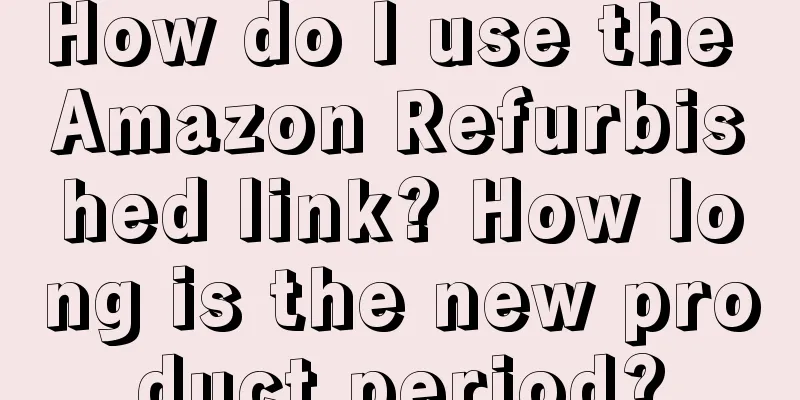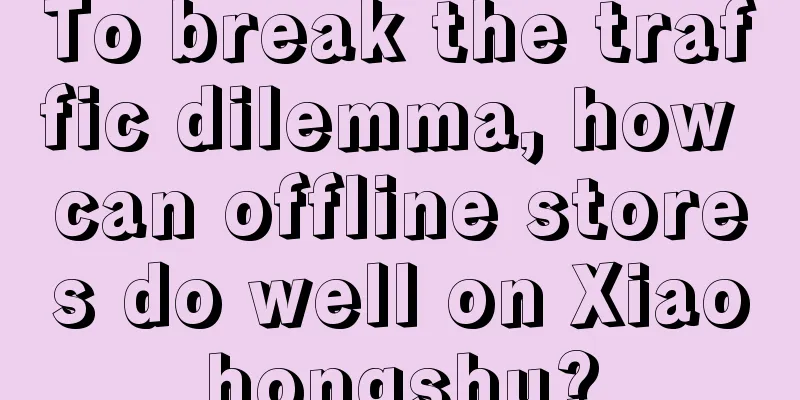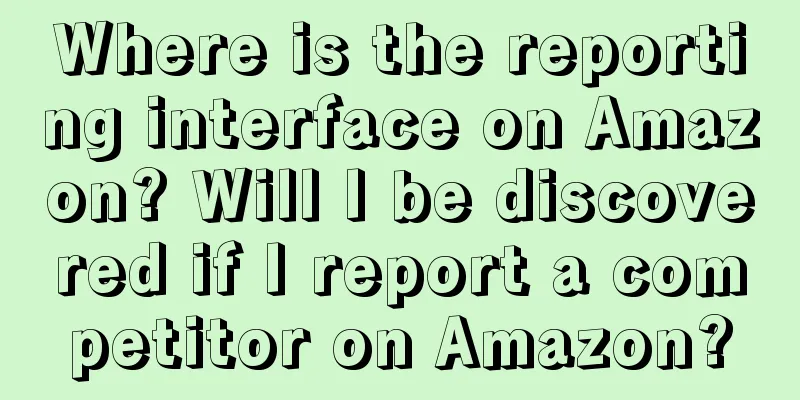In 2023, brands need to reduce the need to please others

I have recently watched two dramas, "The Storm" and "Where the Wind Runs", on and off. The styles are completely different, and the temperaments of the heroines are also very different.
The reputation is great and the characters are likable. There are many reasons: appearance, personality, conversation, ability... all of them have their merits. But hidden behind this is the attitude and stance of "not trying to please anyone easily". Everyone really likes this "unpleasant" attitude. It is not only about character creation, but also about the feeling of being "unpleasant" when reflected in the brand field, which is also worth exploring: First, a reflection of the public mentality. "Although the adult world is too good at conformity and smoothness, in essence, we all want to be ourselves." It is not easy to be yourself. You have to not care about other people's opinions and not break existing interpersonal relationships. Therefore, a faster way is to "express your feelings". You can use some things to be yourself and express your true inner yearning. These "things" can be Chen Shuting's flaming lipstick, Xu Hongdou's resignation without any preparation, and of course the brand's temperament. Second, the conflict between marketing and branding. In recent years, marketing has become more and more pervasive, whether it's "you don't buy at a discount, you don't buy at half price, and you don't buy today when it's broken", or various pain points, itches and pleasures, and overwhelming efforts to create a "sense of demand"... When these massive amounts of "buy me, choose me" information come flooding in, it will undoubtedly make the public feel numb, confused and even distrustful. At this time, if the brand, on the other hand, maintains its independence, individuality and is "not easily flattered", it can often "block out" these noises - like a pool of clear water, removing dryness and heat, and attracting people. It’s almost March 8th. In today’s article, we will use the characters of these two beautiful women to talk about the point of “unpleasantness”:
1. Reduce brand favorability1. The visual effect of "Keep Out"Both Chen Shuting and Xu Hongdou have a clear sense of distance: Chen Shuting has a strong aura and is intimidating as soon as she appears; and Xu Hongdou immediately keeps her distance when facing a male colleague who has a crush on her. The "keep away from strangers" temperament itself has a strong appeal, and it also has a strong appeal to brands: (1) Winning over people who share the same interests as you - Only those who understand will understand When many brands started from 0 to 1, they all started from a circle or a relatively small group of people. One of the key attractions is "only accepting the right people": It could be: "The design only conforms to the aesthetic taste of a certain group of people", "The taste is only the preference of a few people", "The product has a strong appeal to certain specific groups of people", etc. These "keep away from strangers" settings have become a catalyst for the brand, attracting the first wave of fans through "like-minded people". For example, Nu Miao Technology is a high-premium technology hardware brand targeting high-end enthusiasts and heavy technology players. From the product level, it has built high barriers. For example, the Cyberboard keyboard almost has the message "Keep Out" engraved on the product. Ordinary people think this model is crazy because it only has a base, but no switches or keycaps, and it costs more than 3,000 yuan. But in the real keyboard customization circle, after thinking about it and understanding the workmanship and configuration, they think that it is too generous to buy it for only 3,000 yuan. As a result, the product was sold out immediately after it was launched. (2) Setting a high threshold: Tiptoeing to enter the circle Luxury goods, luxury hotels, and high-end restaurants, in addition to using brand style and tone to create a "keep away from strangers" perception, also artificially set high thresholds - for example, last year, LV defined people with an annual income of less than 3 million as "no-income groups." In addition to maintaining the tone, more importantly, doing so will increase the "sense of yearning" at a level lower than the target consumer level. The implicit psychological assumption is that people hope to go from being a "stranger" who is rejected to an "acquaintance" who enters the brand consumption circle, thus stimulating the desire to buy. (3) A genuine and honest personality: not doing certain things Many small and beautiful brands, such as handmade low-calorie foods, often write a sentence in the store: "Not in line with the public taste, low in calories, don't expect too much, very ordinary" Some are even more "extreme" - "There are many negative reviews on Xiaohongshu, so it is recommended to place orders with caution" This seemingly "pushing the door out" and "keeping strangers away" approach actually makes it easier for people to feel the brand's personality and stick to its principles - health first, taste second. 2. Let everyone know that the brand will say "No"When we create characters, we often highlight their personalities through their different reactions to things, especially reactions that are different from others. The same is true for expressing an "unpleasant" personality, which is usually expressed in a "gesture of rejecting certain people and things." For example, when facing the police's questioning, Chen Shuting showed a strong attitude of rejection from the beginning; and when Xu Hongdou faced the dilemma of Yunnan (relationship) and Beijing (work), she chose to leave Yunnan first. For a brand, saying no is a courageous move. The most amazing brand is still Patagonia, the brand that donated the company to the earth. The brand's attitude is reflected in its repeated "no" gestures: Say no to customers——refuse customers to buy their products On Black Friday in 2011, Patagonia bought a full page in the New York Times and ran the famous "Don't Buy This Jacket" ad, promising to repair or recycle old clothes and begging customers not to buy unwanted garbage. This also prompted Patagonia to establish the largest clothing repair center in North America. Say no to big sales – don’t let sales become the devil of impulse buying In China, during the "618" sales promotion, they do not offer any discounts or promotions, and advise people to "buy less and think more." Say no to rules - cancel on-the-job requirements and performance appraisals CEO tells employees: "I don't care how long it takes you to get the job done, as long as you commit to getting it done, and when the waves come, you go surfing. If you have to wait until next Tuesday at 2 p.m. to go surfing, you're probably a loser. If your child is sick, quit your job and go home and take good care of your child." The company has also eliminated annual performance reviews for employees in recent years. When establishing a brand’s personality and attitude, rejection is also a very powerful weapon. To build a brand’s long-term influence, you need to let more people know that you are principled and will say no. This is especially true for personal brands. (For example, the account of Yuwei does not accept external advertising) 3. Mystery and unpredictabilityIn this topic, let's talk about another thing. In the recent overwhelming discussion about "how to avoid being replaced by AI", there is a point worth noting - in a book "Nine Survival Rules in the Age of Intelligence", it is mentioned that the core is one thing, that is: you have to start from your daily life and don't live in the same system as the machine. The first rule is to be an unexpected, social, and scarce person. This means that you know how to create surprises, such as buying a bouquet of flowers for home or praising someone without any reason.
Whether it is to avoid being replaced by AI or to create an "unpleasant" attraction and an unpredictable sense of surprise, it is an important step. The same is true for brands. When there are behaviors that are not easy to predict or guess, they are not only easy to become topics of conversation, but also easier to change from a vague impression to a vivid, real, interesting, Youdao and Blizzard had a fight some time ago, and Blizzard's announcement was even more blatantly shifting the blame. According to common sense, it is possible that the PR drafts flew back and forth and there were several rounds of scolding. However, NetEase quietly launched a product in its own coffee shop - Blizzard Green Tea. This operation is beyond people's imagination, it seems a little wrong, but it also makes sense. This unexpected response - laughing, scolding, and letting one's heart run wild - not only made people more vividly aware of the value of NetEase's attitude, but also made the onlookers smile knowingly, realizing that the soul of a brand can be so interesting. (This is also my favorite case so far this year) 2. How to shape the brand’s temperamentLet’s talk about how to shape the brand’s temperament. In Yuzhuohemao's "Full-link Brand Marketing Operation Method", the brand's hidden line (brand value building and emotional communication) is specifically discussed. In the brand practice class, "How to Build Brand Content in the Fragmented Era", it is also mentioned that there are two types of content to shape the brand: mass content and fan content. Here, we are going to think a little bit more about brand content, brand VI, and brand story. In addition to brand content, brand VI, and brand story, what other ways can be used to shape the brand's temperament? Let the brand's image and temperament be like Chen Shuting and Xu Hongdou, unforgettable and impressive. Combined with current practices, there are two methods worth referring to:
First, we are living in an era of explosive product traffic. How to leave a special impression in the minds of the public depends not only on the product's appearance, design and function, but also on the concept and story behind the product. Although these things seem relatively "virtual", they can actually help people create different memories. To give a direct example, most of the short videos on Douyin directly hit the pain points or reduce prices; however, there is a type of video that goes the other way and tells the concept and story of the product. On the contrary, the natural traffic is very good and the sales data is also good. For example, Lifen, and the Chinese sleep-aid pillow shown below. Secondly, to be honest, brand stories are also very popular. During CNY (Chinese New Year) or the upcoming Women’s Day, we have seen countless long brand videos (I only remember Apple’s “Passing Five Levels”); for the upcoming Women’s Day, I guess there will definitely be a lot of brand attitude ads around topics such as feminism and gender equality. Here, can we change our thinking from telling brand stories to communicating the daily life of the company to demonstrate the brand's attitude? For example, a brand focusing on women's maternity came to me recently and wanted to do a brand attitude campaign on Women's Day. My suggestion was: instead of shooting a feature film or an attitude advertisement, it is better to present it more realistically: How does the company treat pregnant women and postpartum women employees, such as what kind of humane systems are in place, and what kind of attitude is reflected (this company itself has better kindness towards pregnant women than other companies). This not only has news attributes and stimulates media interest, but also can become a reference - "How good other companies are." It can trigger public discussion about other companies. Compared with the "performative" sense of brand voice, the perceived authenticity of corporate culture (company policies and regulations) is something the public is more interested in (comparing with their own company, etc.) and more likely to trust. Most people's perception of the brand qualities of Google and Netflix comes from their unique, loose and free working atmosphere and corporate culture. Of course, the premise must be true, otherwise it is easy to fail. That’s all for today, from how to reduce the “pleasing feeling” of a brand to how to shape a brand personality in a more authentic and differentiated way. I hope this will be helpful and inspiring to you. Author: Lan Lan WeChat public account: Taro and Cat Talk (ID: taro_cat) |
<<: What is the effect of “picture messages” on WeChat public accounts?
Recommend
From the fact that Keep medals sold for 500 million, I summarized two cognitive gains:
Some time ago, Keep sold medals for 500 million yu...
Has the core competitiveness of live streaming e-commerce shifted from “price” to “personality”?
As consumer shopping habits evolve, livestreaming ...
Alibaba wants to charge ahead, while JD.com wants to stay stable
In the fierce competition in the e-commerce field,...
What does Amazon sku code mean? What are the rules?
Each product can be written through the sku code. ...
Soy sauce latte is packaged in a red cup? Luckin Coffee is embarking on the road of "branding of popular products"
Luckin Coffee's joint hit "Soy Sauce Latt...
These 24 brand viewpoints will teach you how to build a brand from scratch
24 brand building perspectives, from insights into...
Is Tmall’s elimination of package card traffic generation paving the way for DingTalk’s private domain?
DingTalk, which has always been regarded as a work...
Top 10 types of Tik Tok bloggers
This article mainly shares the preparations that n...
How to upload products to Amazon without a brand? How to upload products in batches?
On the Amazon platform, having your own brand is a...
What are the requirements for applying for a store on Shopee? Detailed introduction
There are many cross-border e-commerce platforms, ...
Is Alipay Life Account the next short video trend?
When Alipay Life Account fully opens the UGC entra...
How long does it take for Amazon DHL to arrive in China? Which country is DHL from?
There are four international express companies tha...
What is Amazon FBA? Can I use someone else's FBA?
As a new seller, you may be unfamiliar with the te...
Why did Amazon traffic suddenly decrease? What is the reason?
Generally speaking, the traffic of Amazon stores d...
Scenes + surroundings, a differentiating tool for coffee brands
Nowadays, with more and more new brands entering t...








